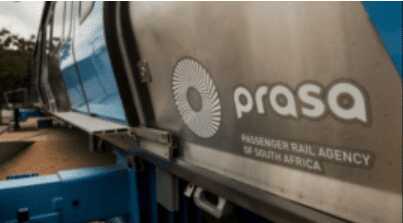State-owned entity, the Passenger Rail Agency of South Africa (Prasa), has continued to fail to prevent irregular as well as fruitless and wasteful expenditure in the 2022-
2023 financial year.
The irregular expenditure increased from R3,3-billion in the 2021-22 financial year to R3,8-billion in the 2022-2023 financial year. This continued to be caused mainly by supply chain management non-compliance.
This information was revealed by officials from the Auditor-General South Africa (AGSA) office on Tuesday in parliament.
AGSA was briefing parliament’s Standing Committee on Public Accounts (Scopa). This on the financial performance of Prasa and the South African Airways (SAA).
The AG’s team was led by the head of portfolio from the national audit portfolio of the AG’s office Andries Sekgetho.
Prasa and SAA’s concerning performances
And the briefing to Scopa was also on the audit outcome and other findings in respect of Prasa. The audit outcome included the annual financial statements and status of compliance with legislation and reporting of performance. These against predetermined objectives for the 2022-23 financial year.
Sekgetho gave a brief in terms of funding for the year under review. He said Prasa received government subsidies from the Department of Transport amounting to R7,2-billion. These were for operations, as well as R12,3-billion for capital expenditure during the 2022-23 financial year.
In addition, Prasa generated revenue of R119-million in fare revenue. Operating lease rental income of R620-million. Other income of R181-million and interest received of R1,7-billion, according to Sekgetho.
“Prasa continued to fail to prevent irregular as well as fruitless and wasteful expenditure in 2022-23. Irregular expenditure increased from R3,3-billion in 2021-22 (this figure was restated from a previously reported R1,1-billion). It increased to R3,8-billion in 2022-23. Irregular expenditure continued to be caused mainly by SCM [supply chain management] non-compliance. During the year, one of the major awards was also found to be irregular through the audit process. It was the general overhaul contract,” said Sekgetho.
Wasteful expenditure on the increase
He said fruitless and wasteful expenditure for 2021-22 financial year was previously reported as R274-million. It was restated during the year under review to R302-million.
Sekgetho said fruitless and wasteful expenditure decreased in 2022-23 to R179-million. However, it concerningly included losses through criminal conduct amounting to R14,8-million (after some recoveries). This as a result of cybersecurity incidents. And it highlights the critical weaknesses noted in Prasa’s ICT environment noted during the audit process.
Meanwhile, Sekgetho said the government paid a R38,1-billion to SAA from April 1 2018 to date. From that amount, he said R27,6-billion was deposited into SAA post the business rescue process.
SAA wasteful expenditure continued post-business rescue
AGSA also briefed Scopa on the audit outcome of SAA for the financial periods 2018-19. Also for the same periods 2019-20, 2020-21 and 2021-22.
Sekgetho said the 2022-23 audit outcomes were not included in their briefing.
“Audit for the 2022-23 has been completed but not yet signed. This as we are still busy with internal SAA governance processes to adopt the final financials and the audit reports. These audits are expected to be signed by the end of September 2024. Except Mango [whose] financial statement has not been submitted for audit. This is due to business rescue proceedings.
“Financial statements for the 2023-24 financial year have not been submitted for auditing. Management committed to submit the financial statements by end of September 2024,” said Sekgetho.
“From 01 April 2018 to as at the date of this report, the government had injected R38.1-billion to SAA. Of which R27.6-billion was deposited post business rescue. Currently, SAA is fully funded with equity- (bailouts). All loans (pre and post commencement financing) were
fully paid through dividend process. The last dividend was paid in August 2023,” said Sekgetho.



